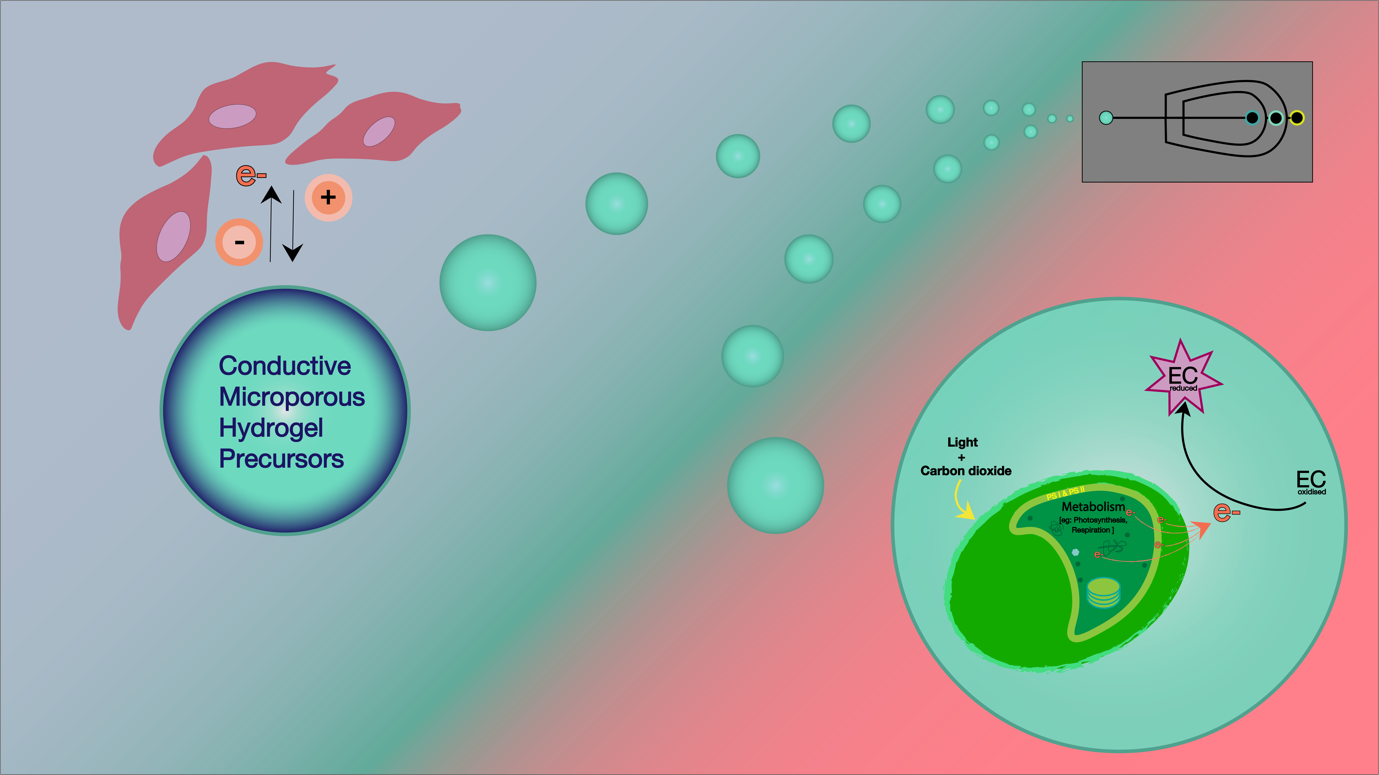The interfaces between electronics and living organisms (known as Bioelectronics) enables monitoring and stimulation of biological processes. These can range from leveraging bio-electrochemical pathways in microbial organisms for energy conversion to developing diagnostics and physiological assays for therapeutics. I am interested in investigating bioelectronic interactions at the cellular level.
For my work in the Knowles group, I leverage upon the unique features of microfluidics, which enables fluidic manipulation at a dimensional scale similar to living cells, to develop single-cell screening assays and electrically-active biocompatible materials. The objective of this work is to develop high throughput and versatile droplet microfluidics platforms to manipulate and characterise biological systems using charge-associated parametres.
In collaboration with Professor Chris Howe’s group in Biochemistry, I work on developing a high-throughput single-cell platform to identify, enrich and isolate for high performing sub-population(s) of electron-generating phototrophic micro-organisms, known as cyanobacteria. These micro-organisms harvest sun light to generate electrons and are used as active power generation materials in Biophotovoltaic devices (BPVs). In collaboration with Professor George Malliaras’s group in Electrical Engineering, I work on developing a three-dimensional electrically-conducting cell-laden platform to investigate the influence of electrical activity on cellular behaviour and functions.
NanoDTC Associate, a2018

